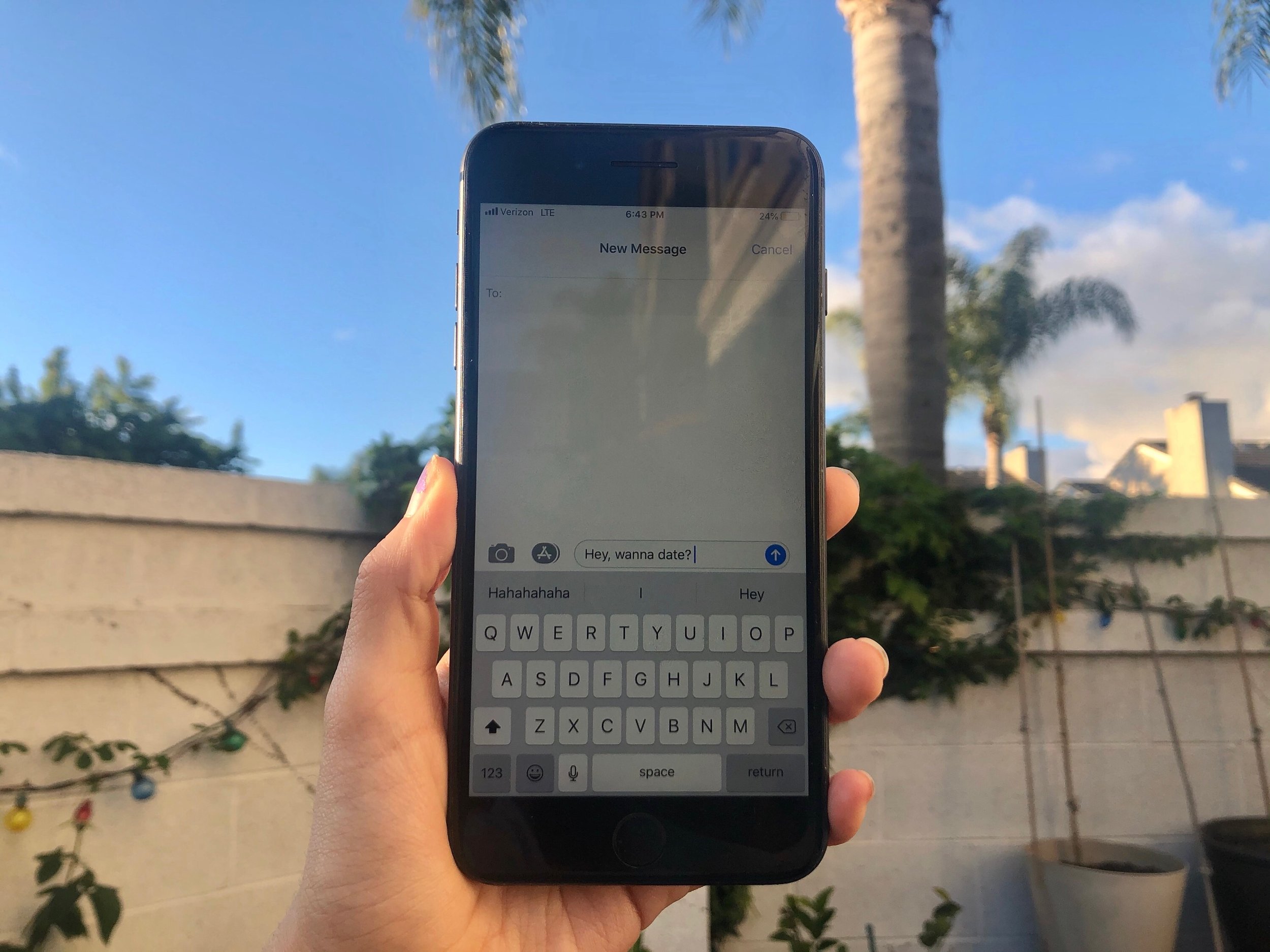Ready For a Date From Home?
Original photo
Alli Fisher, a recent college graduate living in San Francisco, is getting ready for a first date. She’s been talking to someone on Hinge, a popular dating app, for a couple of days now and is preparing herself for the small talk that will soon follow an awkward first time greeting. She pours herself a glass of wine, goes to her desk, opens her laptop and the date begins.
Amid the new social distancing happening globally with the recent spread of COVID-19, plenty of people, like Alli Fisher, are still on the hunt for love, despite the stay at home orders. Many dating apps such as Tinder, Bumble, and Hinge have even released their own statements letting their users be aware of the dangerous spread of coronavirus, and how people should try to communicate via the app instead of going out and meeting each other in person. The Hinge app has a new option that allows users to choose whether or not they are willing to date online or not. With a click of a button, the user will be asked, “ready for a date from home?”. If they are curious about dating from home, the app will set them up with people who are also willing to do so in this new era of coronavirus.
Alli Fisher’s first Facetime date with a man she met on Hinge didn’t exceed or necessarily meet her expectations, as no one is expected to meet their Prince Charming through the alluring glow of the Facetime camera. “We talked about all the things you talk about on a first date, like family and where you went to school. The second date got really awkward.” She found that they had simply ran out of things to talk about, and the second date fizzled out quite quickly.
Although Alli’s date didn’t go as expected, Mary Kay Cocharo, a relationship therapist in Los Angeles, reveals the positive side of virtual dates is, “that it can give us an opportunity to sit face to face and look into each other's eyes and to really talk about some deeper issues.”
While some are trying to find love, others are trying to maintain it. With the countless couples not living together or who were just starting out before the virus took over, a few relationships have become long distance, even if that distance is a short one. Sam Roum, a 19 year old college student living in Orange County, who was able to see her boyfriend everyday during and after their classes together, now connects with him through phone calls and FaceTime, even though he lives a few blocks away from her. “There was a week where we didn’t see each other at all.” Her boyfriend Alex Kuttle chimes in, “We would talk and call each other but it was still very lacking.”
Nowadays, the couple tries to limit their time together, while still attempting to see each other. They see each other about twice a week, commenting that “the main difference is that there’s nothing else to do- so there’s a new home life to look forward to.”
Natalie Louie, a 22 year old living in the Bay Area, began her relationship the week before the shelter in place was instilled in the Bay. Her boyfriend was visiting family in Vancouver and was not able to fly back to his hometown. Thus began an unintentional long distance relationship, but she maintains a positive outlook. “We’re both trying to just be patient with it. I guess it feels like we’ve been able to grow together in the sense that we’re having deep and intentional conversations with each other over FaceTime.”
She describes her “FaceTime dates” which occur twice a week. “We have FaceTime dates twice a week, on Tuesdays and Friday nights. We’ll text and call each other in between if we just want to catch up.” She tries to break up the monotony of FaceTime dates by doing “one fun thing a week, which is challenging with shelter in place.” Although everything seems to be going well for this young couple, Natalie worries that things might become awkward later on when they can interact in person again. “We’re not in the presence of each other which limits the things we can do and how we act around each other. I’m curious to see how that will evolve when we’re actually around each other again.”
In order to strengthen the connection between couples, Dr. Cocharo recommends, “getting those resources that take the date to a deeper level is important. Certainly eye gaze is important because the beauty of video over talking on the phone is that each time we go up a level in conversation we get more information”. She adds that texting delivers the least amount of information and connection to a person while FaceTiming adds more, with body language and facial expression. She believes it is important to follow her simple rule of “don’t text if you can call and don't call if you can FaceTime.”
Although their relationship is only at its early stages, Natalie believes that her and her boyfriend are actually growing closer emotionally. “If we make it through this, then I feel like we can make it through a lot of things,” which is a sentiment shared by Sam and Alex, the couple in Orange County.
Mary Kay Cocharo believes that although the spread of COVID-19 has everyone practicing social distancing, the world of dating will not be permanently altered. “One thing you need to know about the human brain is that we’re wired for connection, so in this disconnected place we’re very much in touch with the presence of the other person’s absence.”
